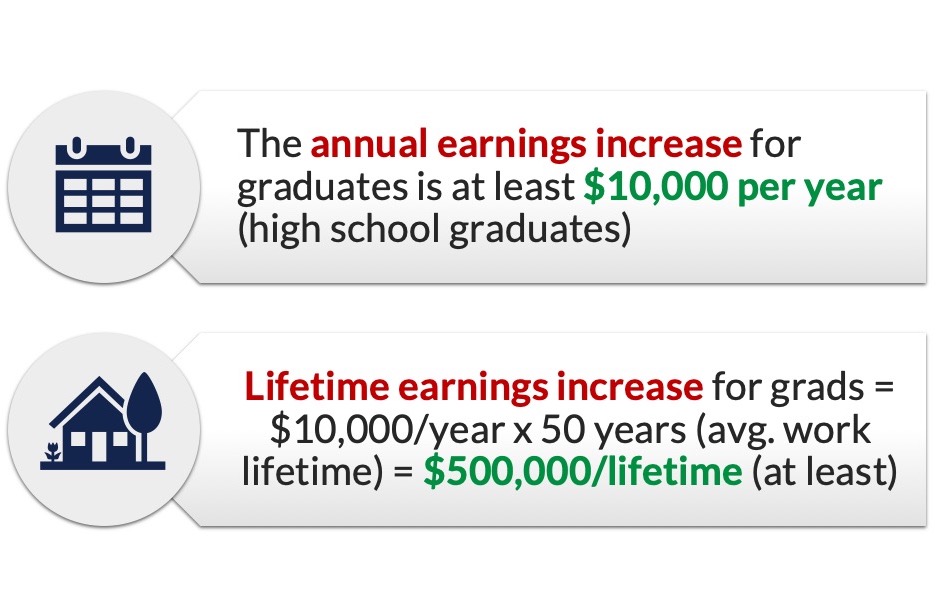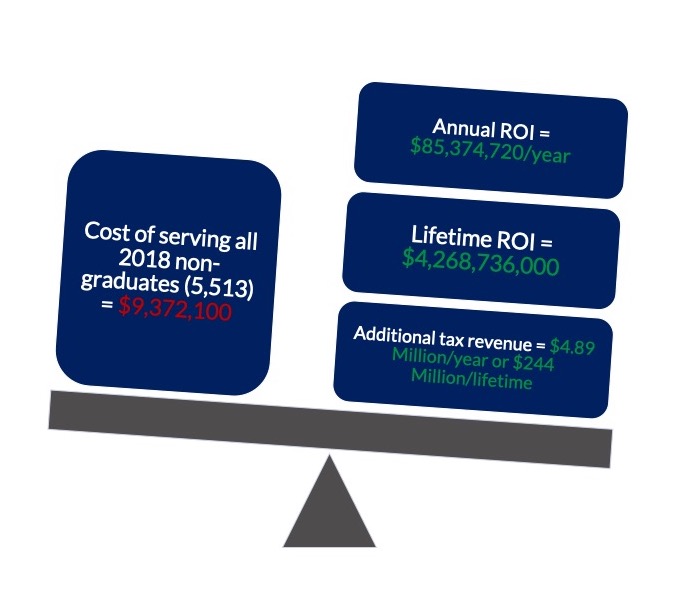
The True Cost of High School Dropouts
Decreased graduation rates doesn’t just mean less graduates, it means less people in the workforce and a negative economic impact. When it comes to the stats surrounding high school dropouts, the financial and social impacts are devastating for both the student and Alabama. Let’s take a closer look.
$957 Billion Per Year
In 2014, 6.5% of our nation’s high school population of 50,468,456 students dropped out or failed to graduate. The 3.3 million dropouts costs taxpayers $292,000 per dropout per year.
$260,000
Lost Earnings
$260,000
Lost Earnings
Less Income Means Less Taxes Paid
Lifetime earnings of high school dropouts are $260,000 less than peers who earn a diploma. Dropouts on average bring in $20,241 annually ($10,000 less than high school grads and over $36,000 less than those with a bachelor’s degree).
Working Together, We Can Help Solve the Problem
Let’s Drop the Drop-out Numbers
While the statistics are drastic, it’s possible to change them. Through the specalized support students receive in JAG, one by one, they can get back to class and back on track.
Increased graduation rates doesn’t just mean more graduates; it means a new workforce that causes a positive economic impact. Let’s paint the picture:
- High school graduates are more likely to be employed, make higher taxable income, and aid in job generation.[22],[23],[24]
- High school graduates earn a national average of $8,000 more annually compared to high school dropouts. [25]
- High school graduates are less likely to engage in criminal behavior or require social services.[26]
- High school graduates have better health and longer life expectancy.[27]
- High school graduates are more likely to vote. During the 2012 presidential election, 4 percent of people who left high school without graduating voted compared to 24 percent of youth with only a high school diploma and 37 percent with a college degree.[28]
- High school graduates contribute to America’s national security because students that leave high school without a diploma are not qualified to serve in the military.[29]
- The nation’s economy depends on skilled labor. Business leaders report difficulty in finding enough qualified employees with the skills, training and education to meet their companies’ needs.[30]



